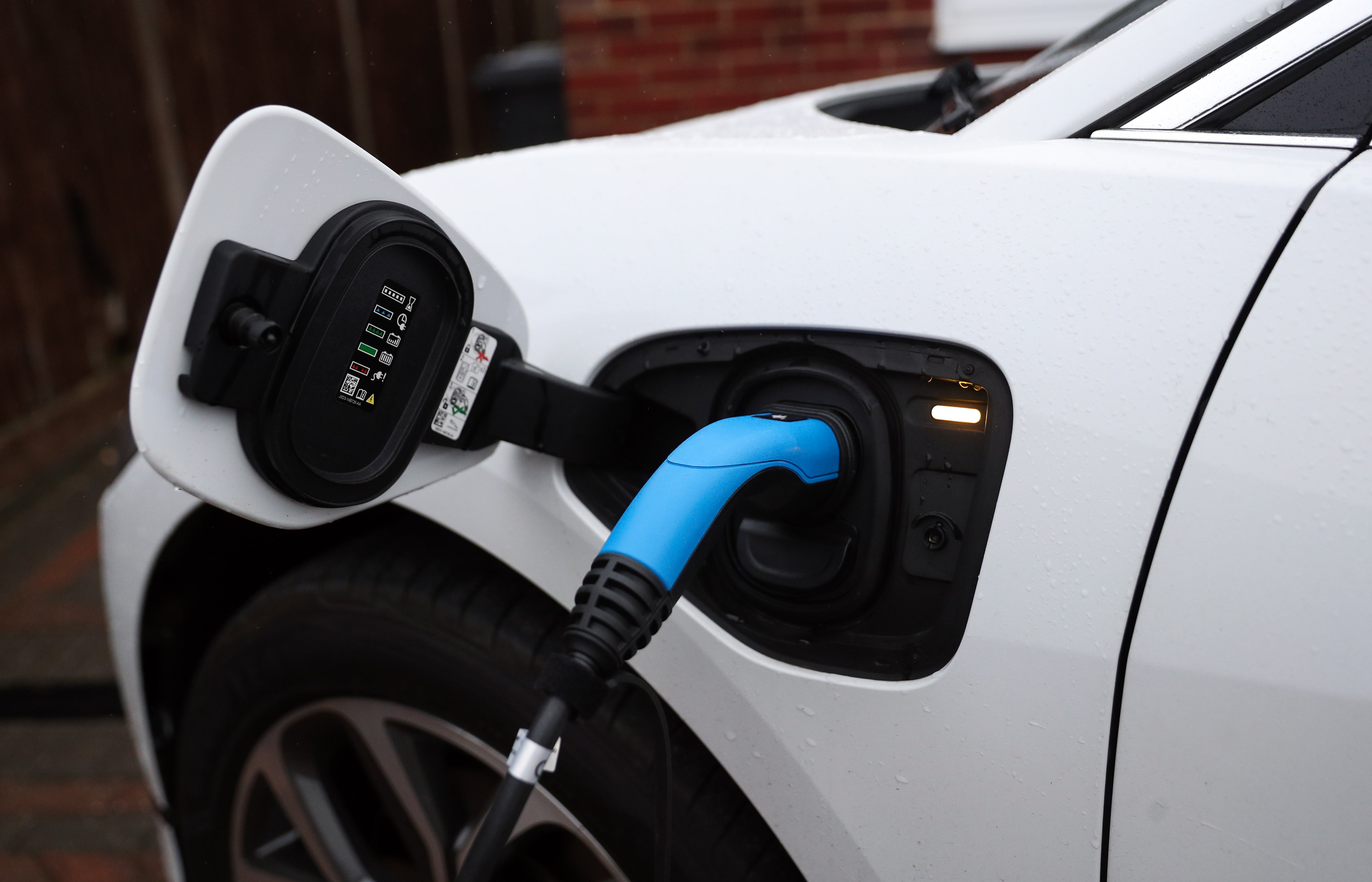Auto industry hits out at Government’s ‘lack of commitment’ to electric cars
The UK is ‘falling behind the competition’, a senior industry figure warned.

Your support helps us to tell the story
From reproductive rights to climate change to Big Tech, The Independent is on the ground when the story is developing. Whether it's investigating the financials of Elon Musk's pro-Trump PAC or producing our latest documentary, 'The A Word', which shines a light on the American women fighting for reproductive rights, we know how important it is to parse out the facts from the messaging.
At such a critical moment in US history, we need reporters on the ground. Your donation allows us to keep sending journalists to speak to both sides of the story.
The Independent is trusted by Americans across the entire political spectrum. And unlike many other quality news outlets, we choose not to lock Americans out of our reporting and analysis with paywalls. We believe quality journalism should be available to everyone, paid for by those who can afford it.
Your support makes all the difference.The level of Government support for the development of electric cars suggests a “lack of commitment”, a senior industry figure has claimed.
Mike Hawes chief executive of the Society of Motor Manufacturers and Traders (SMMT), warned that the UK is “falling behind the competition”.
He cited figures showing that grants in the UK are well below those in the US and Germany.
The lack of investment suggests a lack of commitment
Speaking at the SMMT’s annual conference in central London Mr Hawes said: “We must build back better than our competitors, match the words with deeds.
“By 2025 the UK will have about 12 gigawatt hours of lithium ion battery capacity. The US will have 91, Germany 164.
“UK grants to buy an EV (electric vehicle) are up to £2,500. In the US it’s 7,000 dollars (£5,600), in Germany 9,000 euros (£7,742).
“So, if ambitious words were currency, the UK would indeed be rich. The lack of investment suggests a lack of commitment.”
The SMMT commissioned a report stating that a series of factories producing electric car batteries must be built in the UK to secure the future of the country’s automotive industry and avoid the loss of 90,000 jobs.
A “binding target” of 60 gigawatt hours of battery capacity should be in place by 2030, according to the study.
These gigafactories would give UK manufacturers the capability to build up to one million electric cars a year and ensure tariff-free access to “critical” markets in the European Union, the plan claimed.
The Daily Telegraph reported that Nissan will this week announce its intention to build the UK’s first gigafactory next to its plant in Sunderland.
This would produce enough batteries for 200,000 electric cars a year, according to the newspaper.
The SMMT-commissioned study, written by policy and research company Public First, also called for the installation of at least 2.3 million charging points nationwide before the end of the decade.
There is the potential for 40,000 new, well-paid and high-skilled jobs to be created in the “best-case scenario” of a successful transition to a zero-emissions future combined with “ambitious global trading terms”, the report concluded.
But the document warned that the industry “risks decline” if there are not “competitive conditions”, leading to the loss of around 90,000 jobs.
Shadow business secretary Ed Miliband told the conference that the Government should commit to financing three gigafactories with funding of up to £1.5 billion.
“This investment would signal the UK’s commitment to the industry and demonstrate that Government recognises the urgency of acting now,” he said.
The Labour MP also called for interest-free loans to be made available for motorists buying new and used electric vehicles.
A Government spokeswoman said: “We are committed to ensuring the UK continues to be one of the best locations in the world for automotive manufacturing and are dedicated to securing gigafactories to support the auto sector’s transition to electric vehicles.
“We continue to work closely with investors and vehicle manufacturers to progress plans to mass produce batteries in the UK.
“The UK has over 23,800 public charging points, including 4,450 rapid devices, one of the largest networks of rapids in Europe.
“We are working closely with local authorities to roll out the electric vehicle revolution, with £1.3 billion investment for electric vehicle infrastructure which will support drivers across the country.”